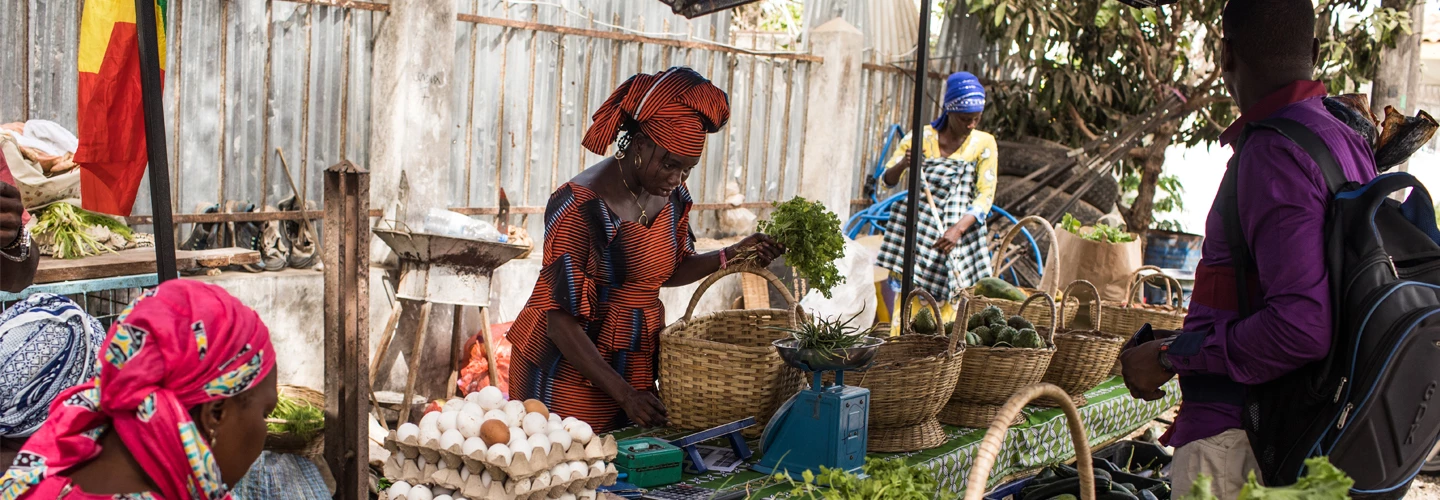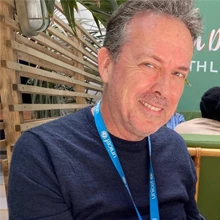 Ensuring food security in Senegal a critical part of the adaptive social protection (ASP) program in the Sahel region. Photo: Vincent Tremeau / World Bank
Ensuring food security in Senegal a critical part of the adaptive social protection (ASP) program in the Sahel region. Photo: Vincent Tremeau / World Bank
A mutually reinforcing cycle of chronic poverty, economic exclusion, social marginalization, and frequent shocks drives fragile conditions throughout the Sahel region. As shocks due to climate change, rising food prices, and conflict increase in frequency and intensity, millions are unable to cope, recover, and rebuild. And as poverty and vulnerability become more pronounced, as does hunger and malnutrition, tackling these shocks becomes more and more challenging.
Stronger social protection systems and scaled-up adaptive national safety net programs are a critical piece of building resilience in the Sahel, helping to reinforce the social contract, tackle the root causes of fragility and reduce the need to resort to humanitarian responses. Governments, development partners, and humanitarian actors have recognized the need for adaptive social protection (ASP) in the region. Making social protection more flexible and agile allows for more effective and efficient long-term resilience building. Especially since the COVID-19 pandemic, we –the World Food Programme (WFP), UNICEF, and the World Bank– have increasingly been working with governments in the Sahel to strengthen the adaptive dimensions of national social protection systems. We see opportunities to build on nascent social protection systems, not only to make them more responsive to shocks, but also to prioritize investments in human capital, which stand to drive economic inclusion, foster social cohesion and combat the cycle of fragility. We believe that working in partnership to support ASP is fundamental to address fragility in the region.
A shared understanding and joint vision for Adaptive Social Protection in the Sahel
UNICEF, the World Bank and the WFP have built a rich collaboration in the Sahel region, recognizing that the expansion of ASP relies on the coming together of social protection, disaster risk management, climate, and humanitarian actors to tap into each other’s expertise and networks. Government leadership, including its support for national safety net programs with shock-response components, has been critical in this agenda. Different mandates offer an opportunity for convergence of expertise around national systems and programs; and we understand that food security, nutrition, and poverty reduction priorities must be tackled in tandem, with social protection playing a critical role in the Sahel.
The convergence among agencies is built on joint diagnostics. For instance, we jointly conducted “stress tests” of national social protection systems, using a World Bank tool assessing the adaptability and scalability potential of existing systems. The three agencies jointly rolled out the tool in all countries in the Sahel, creating inclusive, multi-stakeholder dialogue opportunities around the tool and its results. This has allowed for aligned technical assistance and policy guidance to countries.
We have also worked to strengthen social registries in the region for expanded social protection coverage, improved selection of beneficiaries, and a more streamlined social protection response across actors.
With a shared understanding of opportunities and challenges for ASP in the Sahel, we have developed a joint vision and strategy that not only facilitates alignment of technical support, but also provides a basis for advocacy and common messaging. As part of the Sahel Alliance, we have worked together on joint policy messages on ASP and principles for stronger convergence of support to national systems. The priority message for the Sahel is on the need to invest, including in domestic resources, and in the coverage expansion of national safety net programs with robust adaptive dimensions.
Jointly addressing concrete challenges
Within a robust joint conceptual framework that articulates data and information, service delivery, institutional arrangements, and financing, our three institutions have developed complementary programs to operationalize our joint vision.
First, the World Bank-managed Sahel Adaptive Social Protection Program (SASPP), is a multi-donor trust fund, financed with contributions from Denmark (DANIDA), France (AFD), Germany (BMZ) and the United Kingdom (FCDO). Its objective is to support six Sahelian systems primarily to help vulnerable households adapt to the impacts of climate change and other related shocks.
Second, UNICEF and WFP are implementing a KfW/BMZ–financed Sahel Social Protection Joint Program in Mali, Mauritania, Niger, Burkina Faso, and Chad. The program aims to strengthen national social protection systems and support governments to deliver cash transfers to vulnerable households, using a “twin-track” approach. This means that, as much as possible, cash transfers are channelled through the government’s own delivery system (Track 1), but where government capacity is overstretched or where access is constrained, the program delivers cash transfers through partners outside the government system, including UN and NGO partner channels (Track 2).
The twin-track approach is an example of ensuring timely delivery of ASP, while continuing to strengthen national systems and government leadership. This also applies to our joint contribution to the agenda of enhancing linkages between (adaptive) social protection and humanitarian cash assistance in the Sahel.
Going forward, we will continue to support governments and build coalitions to ensure that adaptive social protection can be scaled up to support poor and vulnerable people and contribute to a more resilient, cohesive and prosperous Sahel.




Join the Conversation